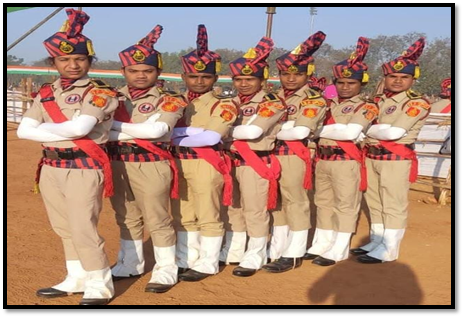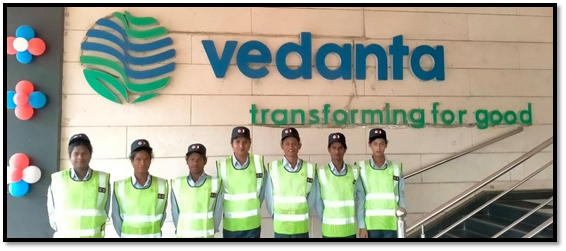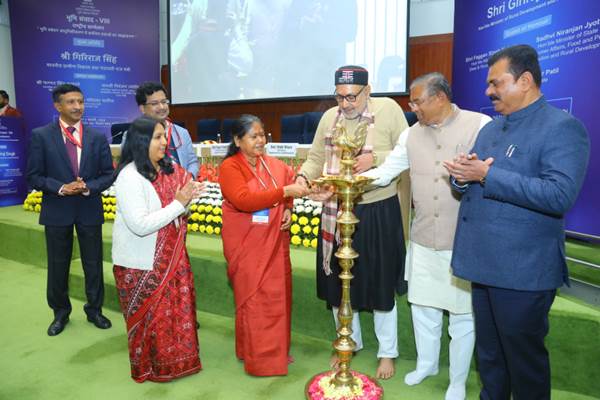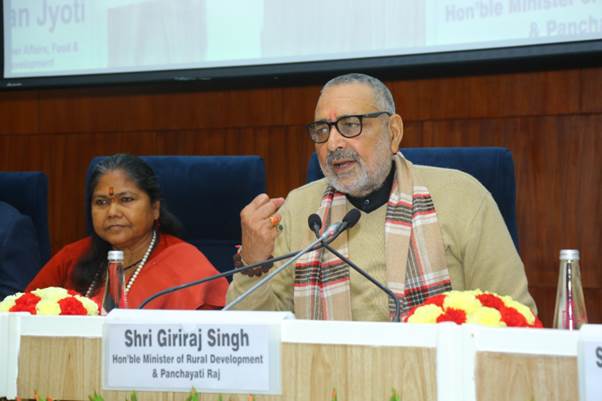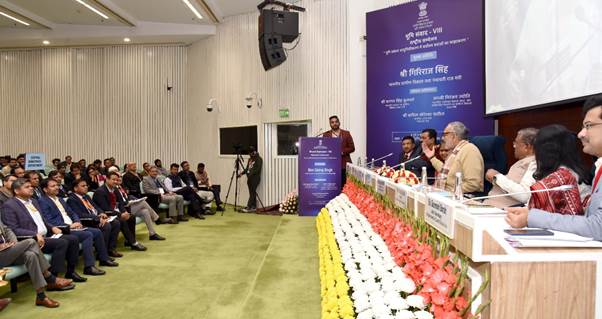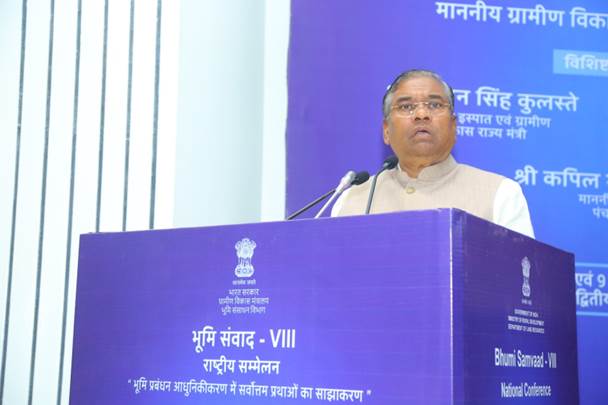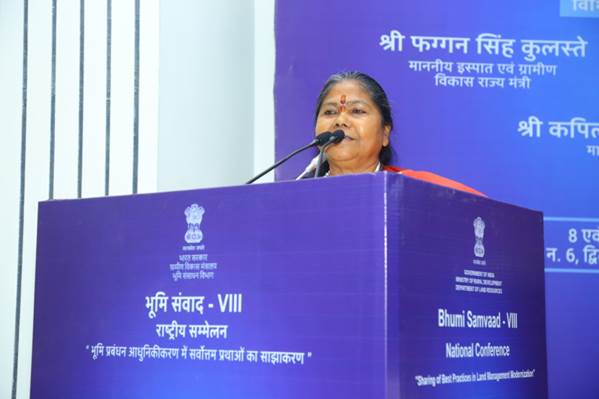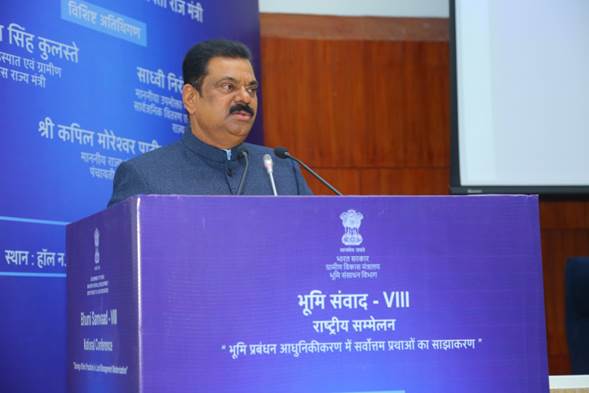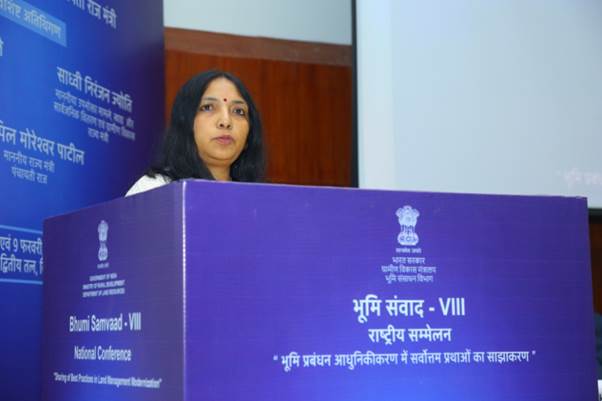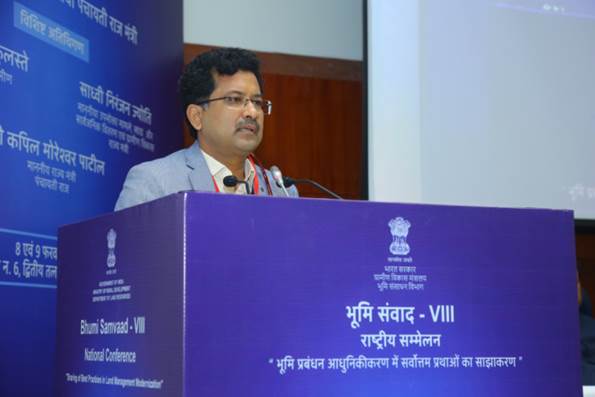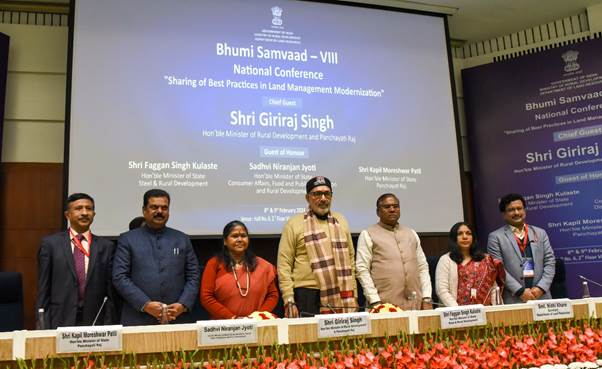Secretary, Ministry of Panchayati Raj Shri Vivek Bharadwaj will inaugurate the two-day National Workshop on 22nd February, 2024 at Bhopal, Madhya Pradesh. The Ministry of Panchayati Raj, in collaboration with School of Planning and Architecture, Bhopal, is organizing a Cross Learning-cum-Interactive National Workshop on Gram Panchayat Spatial Development Plan (GPSDP) on 22nd and 23rd February, 2024 at Bhopal, Madhya Pradesh. Additional Chief Secretary to the Government of Madhya Pradesh Shri Manu Srivastava, Additional Secretary, Ministry of Panchayati Raj Dr. Chandra Shekhar Kumar, Joint Secretary, Ministry of Panchayati Raj Shri Alok Prem Nagar and Director, School of Planning and Architecture, Bhopal Prof. Kailasa Rao M will also participate in the National Workshop.
Distinguished participants from various sectors including State Town and Country Planning Departments, Leading Planning and Architecture Institutes, Industry experts, Smart City Mission Leaders, State Level Bankers Committee, NABARD, and several government agencies will also contribute to the workshop. Noteworthy also are the representatives from 17 partner specialized agencies and institutions of national repute, encompassing Planning and Architecture Colleges, along with elected representatives and functionaries from 34 Gram Panchayats spanning 14 States, for which GPSDPs have been meticulously prepared. This gathering promises robust exchanges of insights, experiences, strategies and innovative approaches, fostering collaborative efforts towards advancing the holistic development agenda for Gram Panchayats across the nation.
The two-day interactive session includes presentations by 17 Partner Planning and Architecture Colleges on 34 Gram Panchayats from 14 States for which GPSDPs were prepared. The discussion with the State Town and Country Planning (T&CP) Department is expected to shed light on statutory provisions for rural area spatial planning and the role of T&CP in the preparation and implementation of the GPSDP.
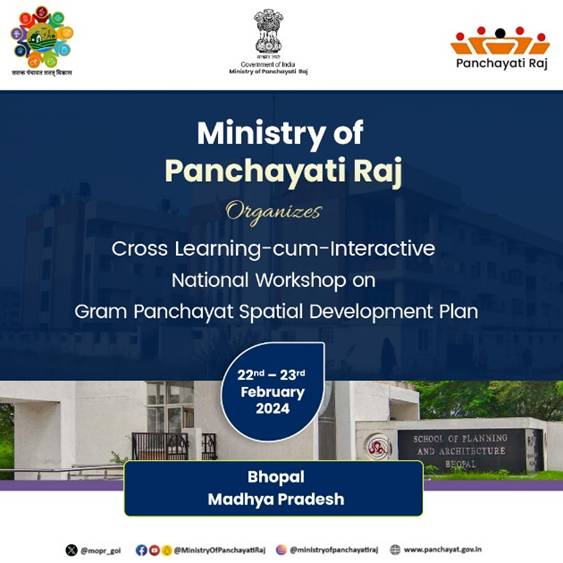
Laying special emphasis on the criticality of a spatial approach to rural planning and recognizing its significance for all-round development, the Ministry of Panchayati Raj has spearheaded an initiative aimed at on-boarding all States, institutions and key stakeholders around transformative endeavours such as the Gram Panchayat Spatial Development Plan. A significant stride towards realizing this vision has been initiated through a comprehensive two-day brainstorming National Workshop fostering the exchange of invaluable information, knowledge and experiences. This workshop serves as a pivotal platform for in-depth discussions concerning the roadmap, master plan and strategy pivotal for the holistic development of Gram Panchayats. The Rural Area Development Plan Formulation and Implementation (RADPFI) Guidelines, 2021, introduced by the Ministry of Panchayati Raj, are poised to play a vital role in guiding and shaping the formulation and effective execution of Gram Panchayat Spatial Development Plans, thereby propelling sustainable progress and prosperity across rural landscapes.
The two-day interactive National Workshop will provide an ideal and interactive platform for fostering cross-learning opportunities among Panchayats and Government Agencies. With a focus on understanding the overarching vision and long-term planning needs, the National Workshop aims to address various facets of inclusive and sustainable development in rural areas, including infrastructure development, disaster management, waste management, skill development among others. The Workshop is intended to elicit views of stakeholders on adoption of spatial planning for enhancing the quality of life in rural habitats, using RADPFI Guidelines to achieve their goals and enlist support for transformation of the countryside from denizens, financiers, policy planners, technology providers alike. Through shared insights and concerted efforts, the National Workshop endeavours to catalyze positive transformation across Gram Panchayats nationwide.
***



